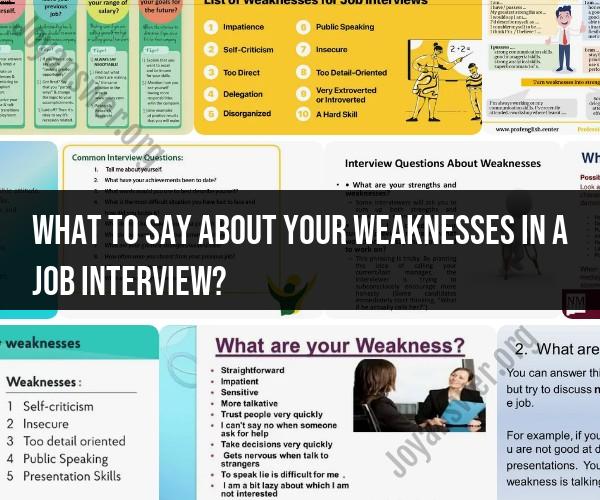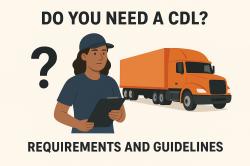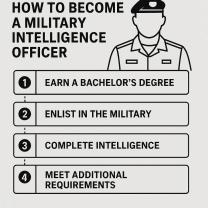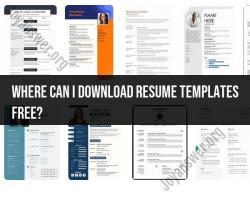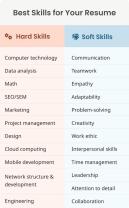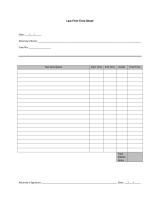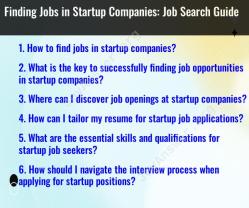What to say about your weaknesses in a job interview?
Addressing weaknesses in a job interview can be a delicate task, but it's an opportunity to demonstrate self-awareness, willingness to improve, and a positive attitude. Here are some tips and strategies for discussing your weaknesses in a job interview:
Choose a Relevant Weakness: Select a weakness that is not directly related to the essential skills and qualifications required for the job. The weakness should also be genuine and related to your professional growth.
Show Self-Awareness: Begin by acknowledging the weakness and expressing self-awareness. For example, you might say, "One area I've identified for improvement is..."
Discuss Your Efforts to Improve: Explain what steps you have taken or are currently taking to address this weakness. This demonstrates your commitment to personal and professional growth. For instance, you can say, "I've been actively working on this weakness by..."
Highlight Progress: If you've made progress in overcoming the weakness, share it with the interviewer. For instance, "I've seen improvement in this area, and I recently..."
Relate It to the Job: Discuss how you're working to address this weakness and how it's making you a better candidate for the specific job you're applying for. Explain how it won't hinder your ability to excel in the role.
Show Enthusiasm for Learning: Emphasize your eagerness to learn and develop in your professional career. This can demonstrate a growth mindset. For example, you can say, "I'm excited about the opportunity to learn and grow in this position."
Avoid Red Flags: Be cautious not to mention weaknesses that could raise red flags for the employer, such as poor work ethic, lack of punctuality, or issues related to teamwork.
Keep It Professional: Keep your response focused on professional weaknesses rather than personal ones. Avoid sharing overly personal or sensitive information.
Practice Your Response: Prepare your response in advance and practice it. This will help you deliver your answer confidently and concisely during the interview.
Use the "Strengths and Weaknesses" Approach: Some candidates choose to follow up their weakness with a statement about how they've turned it into a strength or how it complements their strengths. For example, "One of my weaknesses used to be public speaking, but I've turned it into a strength by taking public speaking courses and volunteering to present at meetings."
Be Honest and Authentic: Authenticity is important in interviews. Be honest about your weaknesses, but frame them in a way that shows you're actively working to improve.
Here's an example of addressing a weakness: "One area I've identified for improvement is time management. I used to struggle with staying organized and meeting deadlines. However, I've since implemented time management tools, such as using a task management app, and I've been taking courses on effective time management. I've seen significant progress in this area, and I'm committed to continually improving my time management skills."
Remember that the key to addressing weaknesses in a job interview is to demonstrate that you are aware of your areas for improvement, you're taking action to address them, and they won't hinder your ability to perform well in the job.
Discussing Weaknesses in a Job Interview: Best Practices
Discussing weaknesses in a job interview can be a daunting task, but it is important to be prepared to do so. Employers want to know that you are self-aware and that you are working on improving your skills. Here are some best practices for discussing weaknesses in a job interview:
- Choose the right weakness to discuss. Don't choose a weakness that is essential for the job you are interviewing for. Instead, choose a weakness that is not essential for the job and that you are working on improving.
- Be honest and specific. Don't try to sugarcoat your weakness or make it sound like it's not a problem. Be honest about your weakness and provide specific examples of how you are working on improving it.
- Be positive and forward-looking. Don't dwell on your weakness or make it seem like it's going to prevent you from being successful in the job. Instead, focus on how you are working on improving it and how you plan to use your strengths to compensate for it.
Strategies for Addressing Weaknesses and Areas for Improvement
There are a number of strategies you can use to address your weaknesses and areas for improvement. Here are a few tips:
- Identify your weaknesses. Take some time to reflect on your skills and areas for improvement. Once you have identified your weaknesses, you can start to develop a plan to address them.
- Set goals. Once you have identified your weaknesses, set specific and measurable goals for improving them. Break down your goals into smaller steps so that you can make progress over time.
- Develop a plan. Once you have set your goals, develop a plan for how you will achieve them. This may involve taking courses, reading books, or seeking out mentorship from someone who has the skills you are trying to develop.
- Take action. Don't just sit around and think about how you are going to improve. Take action on your plan and start working on improving your weaknesses.
Turning Weaknesses Into Strengths During an Interview
One way to turn a weakness into a strength during an interview is to show that you are aware of your weakness and that you are working on improving it. For example, if you are not as experienced in a particular area as the employer is looking for, you could mention that you are taking a course to learn more about that area.
Another way to turn a weakness into a strength is to show that you have complementary strengths that can compensate for your weakness. For example, if you are not a strong public speaker, you could mention that you are a good writer and that you are comfortable communicating with people one-on-one.
Providing Honest and Constructive Responses to Weakness Questions
When answering weakness questions in an interview, it is important to be honest and constructive. Don't try to sugarcoat your weakness or make it sound like it's not a problem. Instead, be honest about your weakness and provide specific examples of how you are working on improving it.
It is also important to be positive and forward-looking in your response. Don't dwell on your weakness or make it seem like it's going to prevent you from being successful in the job. Instead, focus on how you are working on improving it and how you plan to use your strengths to compensate for it.
Follow-Up Actions After Discussing Weaknesses in an Interview
After discussing your weaknesses in an interview, it is important to follow up with the employer. You can do this by sending a thank-you note or by emailing the employer to reiterate your interest in the job and to answer any additional questions they may have.
You can also use the follow-up as an opportunity to address any weaknesses that you discussed in the interview. For example, if you mentioned that you are working on improving your public speaking skills, you could mention that you are enrolled in a public speaking course and that you are looking forward to putting your new skills to use in the job.
Discussing weaknesses in a job interview can be a challenging task, but it is important to be prepared to do so. By following the tips above, you can make a positive impression on the employer and show them that you are a self-aware and motivated individual.
